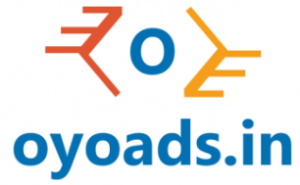Software Architect Interview Questions and Answers Updated [September 2023]
Welcome to the definitive course on Software Architecture interview preparation! Whether you’re a fresher seeking to make a mark in the world of software design or an experienced professional aiming to upskill, this course provides an exhaustive set of questions and answers, all tailored to give you an edge in interviews and help you stand out.
Course Breakdown:
-
Basics of Software Architecture: Dive deep into the foundational aspects of software architecture. Understand what software architecture entails, the pivotal role of a software architect, the responsibilities that come with the title, and the different levels of architecture from application to enterprise.
-
Technical Skills and Tools: Get acquainted with the vital technical skills every software architect must possess. This includes patterns and design principles like MVC, MVP, MVVM, SOLID, and Domain Driven Design. We also delve into various architectures like NoSQL and SQL Databases, ETL, Datawarehouses, and more. Don’t miss the segment on essential tools like Git, Trello, and Slack.
-
Web and Mobile Architecture: In this module, explore the dynamic world of web and mobile architectures. Understand popular web frameworks like React, Vue, and Angular. Discover the nuances of mobile development approaches, including SPA, SSR, and SSG. Learn about the rising trend of Progressive Web Apps (PWA), Microfrontends, and the principles behind Reactive and Functional Programming.
-
APIs and Integration: APIs form the backbone of modern software integration. Grasp the intricacies of GraphQL, REST, BPM, and BPEL. Dive deep into ESB, SOAP, GRPC, and the role of Messaging Queues in seamless data transfer.
-
Security and Operations Knowledge: Security is paramount in today’s digital age. Equip yourself with knowledge on hashing algorithms, PKI, OWASP, and various authentication strategies. Get a solid understanding of enterprise software like IBM BPM, EMC DMS, SAP ERP, and more. Discover the realm of networks, proxies, Infrastructure as Code, and the offerings of various cloud providers.
-
Working with Data: In an age where data is the new oil, understanding data-related architectures is crucial. Dive into platforms like Hadoop, Spark, and MapReduce. Understand analytics at its core, get acquainted with data warehousing principles, and explore programming languages ranging from Python, Ruby, Go to Java, Kotlin, Scala, JavaScript, TypeScript, and the .NET framework.
Why Choose This Course?
-
Comprehensive Coverage: Every topic is covered in depth, ensuring you’re well-prepared for any question thrown your way.
-
Expertly Crafted Questions: Our questions mirror real-world interview scenarios, ensuring you’re always a step ahead.
-
Detailed Explanations: We don’t just provide answers; we explain them, ensuring you truly understand the concepts.
-
For All Experience Levels: Whether you’re a beginner or have years of experience, our course caters to all, providing value at every level.
Course Format (MCQ): This course employs a Multiple Choice Question (MCQ) format, a tried-and-true method that facilitates effective learning and assessment. Each module is equipped with a series of MCQs designed to test your understanding of the topic at hand. These questions have been crafted by experts to reflect the kind of queries you might encounter in real-world interviews, ensuring that you’re well-prepared and confident. The MCQ format not only allows for quick self-assessment but also helps in reinforcing the concepts learned, making your revision sessions more efficient.
Who should take this course?: This course is tailor-made for a wide spectrum of learners:
-
Beginners & Freshers: If you’re new to the field of Software Architecture and are looking to gain a foundational understanding along with interview preparation, this course is for you.
-
Experienced Professionals: For those who have been in the field but want to refresh their knowledge or upskill, especially in areas they might not be familiar with.
-
Job Seekers: Individuals actively seeking roles in Software Architecture, design, and development will find this course invaluable in interview preparation.
-
Tech Enthusiasts: Even if you’re not aiming for a specific job role but have a passion for understanding Software Architecture, you’ll find the content engaging and enlightening.
We Update Questions Regularly: The tech world is ever-evolving, and so is our course content. We are committed to providing the most updated and relevant set of questions to our learners. Our team of experts continuously monitors advancements in the field of Software Architecture and refines the course material accordingly. When you enroll in this course, you can be assured of receiving the most up-to-date information, keeping you ahead of the curve.
Examples of the types of questions you’ll encounter: Our course offers a diverse range of questions, reflecting the breadth and depth of Software Architecture. Here are some examples:
-
Which design pattern best suits a scenario where one wants to decouple an abstraction from its implementation?
-
A) Factory Pattern
-
B) Bridge Pattern
-
C) Singleton Pattern
-
D) Observer Pattern
-
-
In the MVC architecture, which component is responsible for handling user input?
-
A) Model
-
B) View
-
C) Controller
-
D) Service
-
-
Which of the following is NOT a NoSQL database?
-
A) MongoDB
-
B) Cassandra
-
C) PostgreSQL
-
D) CouchDB
-
These questions are representative of the variety and depth you can expect, ensuring a holistic preparation for your interviews.
FAQs on Software Architecture:
-
What is Software Architecture?
Software Architecture refers to the structured framework used to conceptualize software elements, relationships, and properties. It serves as a blueprint for a system and its components.
-
How is Software Design different from Software Architecture?
While both are closely related, Software Architecture focuses on the high-level structure of software, laying out the overarching system design. Software Design, on the other hand, delves deeper into the component-level details.
-
Why is Software Architecture important?
It ensures that all software elements are aligned with business goals, requirements, and function as a cohesive system. It also aids in making systematic decisions and maintaining scalability, performance, and manageability.
-
What are some common Software Architecture patterns?
Common patterns include MVC (Model-View-Controller), MVP (Model-View-Presenter), MVVM (Model-View-ViewModel), and many more.
-
How does a Software Architect differ from a Software Developer?
A Software Architect focuses on the high-level design, planning, and coordination of various components of a project, while a Software Developer is more involved in the detailed coding and implementation of these designs.
-
What is Domain-Driven Design (DDD)?
DDD is an approach to software development that prioritizes the domain logic, ensuring that the design is based on and evolves around the domain model.
-
Can you explain Microfrontends?
Microfrontends is an architectural style that extends the concept of microservices to the frontend. It allows for splitting a frontend monolith into smaller, more manageable pieces.
-
What are the benefits of Reactive Programming?
Reactive Programming facilitates building responsive, resilient, and scalable systems. It allows for easier handling of asynchronous data streams and better management of system resources.
-
How do NoSQL databases differ from SQL databases?
SQL databases are relational and use structured query language (SQL) for querying. NoSQL databases can be document-based, key-value pairs, graph databases, or wide-column stores, and don’t always use SQL.
-
What’s the significance of Infrastructure as Code (IAC)?
IAC is the management of infrastructure (networks, virtual machines, load balancers, etc.) using code and automation tools, ensuring consistent and efficient deployment and scaling.
FAQs on the Course:
-
Who is this course intended for?
This course is suitable for beginners, experienced professionals, job seekers, and tech enthusiasts looking to deepen their understanding of Software Architecture and prepare for interviews.
-
How is the course structured?
The course is structured in an MCQ format, covering diverse topics under Software Architecture, providing both questions and in-depth explanations.
-
Do I need any prior knowledge before enrolling?
While prior knowledge can be beneficial, the course is designed to be comprehensive, catering to both beginners and experienced professionals.
-
How often are the questions updated?
We regularly update the questions to ensure they reflect the latest trends and advancements in the field of Software Architecture.
-
Can I access this course on mobile devices?
Yes, being a Udemy course, you can access it on any device with the Udemy app or through a web browser.
-
Are there any practical exercises or just theoretical questions?
The primary focus of the course is on theoretical questions to prepare for interviews. However, the detailed explanations provide a deep understanding that can be applied practically.
-
What if I have doubts or questions while going through the course?
Udemy provides a platform for students to ask questions and engage in discussions. Our team of experts will be available to address any queries.
-
How long will I have access to the course once purchased?
Once purchased, you will have lifetime access to the course, including all future updates.
-
Is there a refund policy?
Yes, Udemy offers a 30-day money-back guarantee. If you’re not satisfied with the course, you can request a refund within this period.
-
Will there be any hands-on projects or assignments?
The primary focus is on MCQs and their in-depth explanations. While there aren’t hands-on projects, the knowledge gained can be applied in real-world scenarios and personal projects.
Gear up for your next interview with confidence.
Enroll now and master the world of software architecture!

![600+ Software Architect Interview Questions & Answers [2023]_650f952f13eb2.jpeg](https://oyoads.in/wp-content/uploads/600-software-architect-interview-questions-answers-2023_650f952e84c0b-696x392.jpeg)






















![[100% Free]Python Bootcamp 2020 Build 15 working Applications and Games (31.5 Hours)](https://oyoads.in/wp-content/uploads/2020/05/Python-Bootcamp-2020-Build-15-working-Applications-and-Games-1-100x70.jpg)

![[100% Free]Java Programming: Complete Beginner to Advanced](https://oyoads.in/wp-content/uploads/2020/05/IMG_20200519_054150_522-100x70.jpg)
